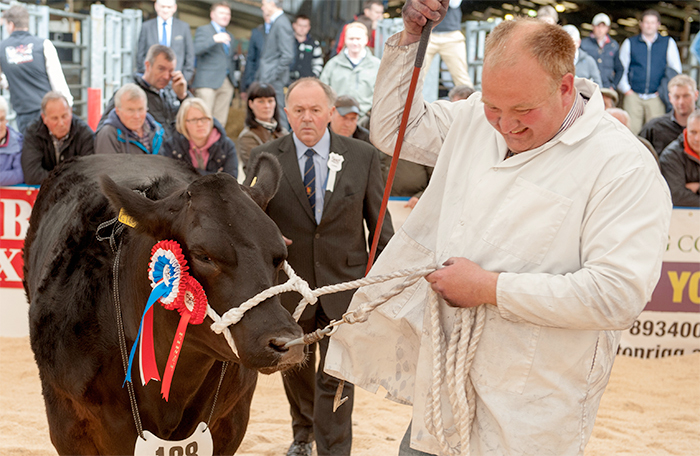
Funding for a £1.75 million selective breeding project to improve the competitiveness of the UK beef industry has been won by EBLEX.
The four-year project will be carried out by EBLEX with Scotland’s Rural College (SRUC).
It aims to deliver a substantial positive effect on both the economic performance and environmental impact of beef production in the UK. The research has a projected increase in farm level profit of 39 per cent and a reduction in greenhouse gas emissions of 22 per cent.
The project will initially agree industry-wide protocols for measuring feed efficiency and taking and storing tissue samples for future analysis. Facilities will be installed on selected commercial farms to measure feed efficiency with around 1,800 cattle providing the data.
The results will be used to develop Estimated Breeding Values (EBVs) for traits relating to feed efficiency and produce a set of possible business models for the continued recording of feed efficiency parameters.
EBLEX head of research and development Kim Matthews, who is leading the project, said: “We are very excited about this research project. Feed is one of the main costs in any beef enterprise. Therefore this research has huge potential for beef farmers in the UK.
“The Limousin breed of cattle will provide data at this stage of the project to robustly demonstrate proof of principle. We will go on to collect data from other breeds – significant genetic variation exists within all breeds for the characteristics that relate to being feed efficient and the results will provide tools for all beef cattle breeders.”
Defra will provide £1.5 million funding and £250,000 will be funded by EBLEX, making it the largest project in terms of cost that EBLEX has undertaken.
Secretary of State for the Environment Elizabeth Truss said: “I want to forge a future for British farming, based on innovation, technology and the quality of our great British food.
“That is why we are helping fund this new research using biotechnology to identify what genes make the best beef cattle. This landmark project is expected to contribute to £150m a year in farm profits and is just one example of how food and farming is embracing the future to become a high-tech, powerhouse industry.”
Eileen Wall, SRUC reader in integrative animal sciences and project lead scientist, said: “This industry-based project will provide knowledge and tools to bring about a step change in improvement for the UK beef industry.
“It will help drive behavioural change in terms of the more widespread adoption of genetic improvement tools.
“The project is complementary to other activities in the beef industry and we’re excited to be working on this project as it supports innovation for longer-term profitability and sustainability of UK beef production.”
